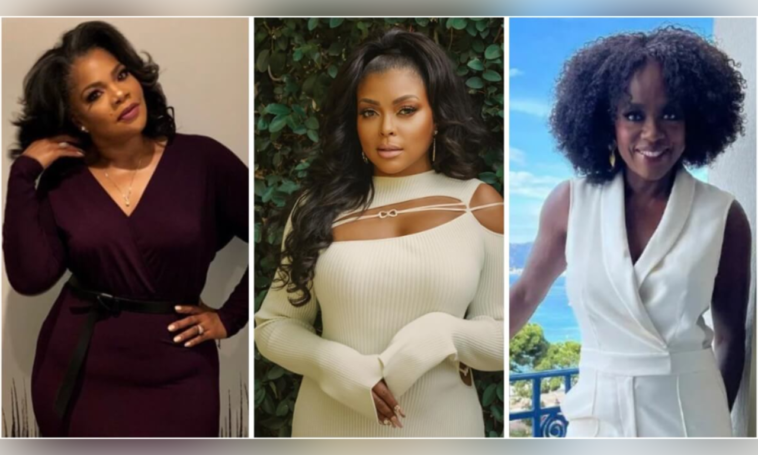Mo’Nique And Viola Davis’ Talks On Pay Disparities In Hollywood Resurface As Taraji P. Henson Expresses Support For Emotional Remarks About The Issue. Comedian Mo’Nique may have just begun a season of retribution, as Taraji P. Henson has revived discussions over Black actresses’ struggle for fair compensation for their labor.
The actress from “The Color Purple” caused a stir when she candidly revealed that she has become weary of fighting for recognition in the entertainment industry, even after demonstrating her abilities to succeed at the box office and on television. Her admission touched off a wave of headlines.
Henson’s struggle has led to a revival of social demands for Mo’Nique to get her flowers for speaking up on the matter more than ten years ago. Several well-known actors, like Gabrielle Union and Viola Davis, have co-signed the petition.
“Nobody supported Monique when she tried to inform you guys! Rather, you guys have seen her as a black ball for years. “I am speechless for all of you,” a commenter on a post from The Jasmine Brand said.
Other comments were, “Mo’nique tried to tell y’all years ago and people were saying she was complaining too much.” and “Mo is owed a HUGE Apology from black Hollywood.” Look now! Whoa! Whoa! Another black actress is singing the same song.
The “Precious” actress’s issue started when it was said that she was blackballed for refusing to promote the movie without being paid and outside the terms of her contract. Although she won the Oscar for Best Supporting Actress for her performance in the 2009 film, she was accused of making excessive demands and maintained that her acting talent was undervalued in future roles.
I wish we would quit mentioning Mo’Nique; her argument about her stand-up special differed from what she claimed. When Viola Davis said that her resume is identical to that of Glenn Close or Meryl Streep and that her salary is much less, we need to bring her up.
I told the guys, ‘Guys, I can’t tolerate it.'” In a 2015 interview on being shunned by Hollywood, Mo’Nique remarked, “Because if I accept that and I win the award, what are my sisters being offered that didn’t win the award or wasn’t nominated?”
And what does it say to the young girl who isn’t here yet if we keep accepting these meek offers? How can we alter things and make a difference, she questioned.
With her Grammy victory in February, Davis achieved an EGOT. She has long highlighted the differences in roles and compensation between Black and White actors. The “How to Get Away With Murder” actor said that she and her peers only make a tenth of what white female protagonists in films make during her remarks at the 2018 Women in the World panel.
“My career is probably similar to that of Sigourney Weaver, Julianne Moore, and Meryl Streep; they all attended Yale, Julliard, and NYU.” They followed the same route as me, but I am far behind them in terms of income and employment prospects,” Davis said.
“You’re a Black Meryl Streep,” people remark when I pick up the phone, even though I’m nothing near that, and yet I have to do it regularly. My agents are excellent, by the way, and they get it. Give me what I’m due. You compensate me fairly.
This year, Mo’Nique made a splash again when she was cast in a comedy special on Netflix called “My Name is Mo’Nique.” This came years after she was the target of a contentious lawsuit alleging that they had discriminated against her race by making a lowball offer for her comedy special. She is suing Paramount for allegedly not being paid royalties for her work on “The Parkers.”





One Comment
Leave a ReplyOne Ping
Pingback:Taraji P. Henson claims she fired her whole team
Join the Community and Be a Part of the Conversation
You must be logged in or registered to post a comment.